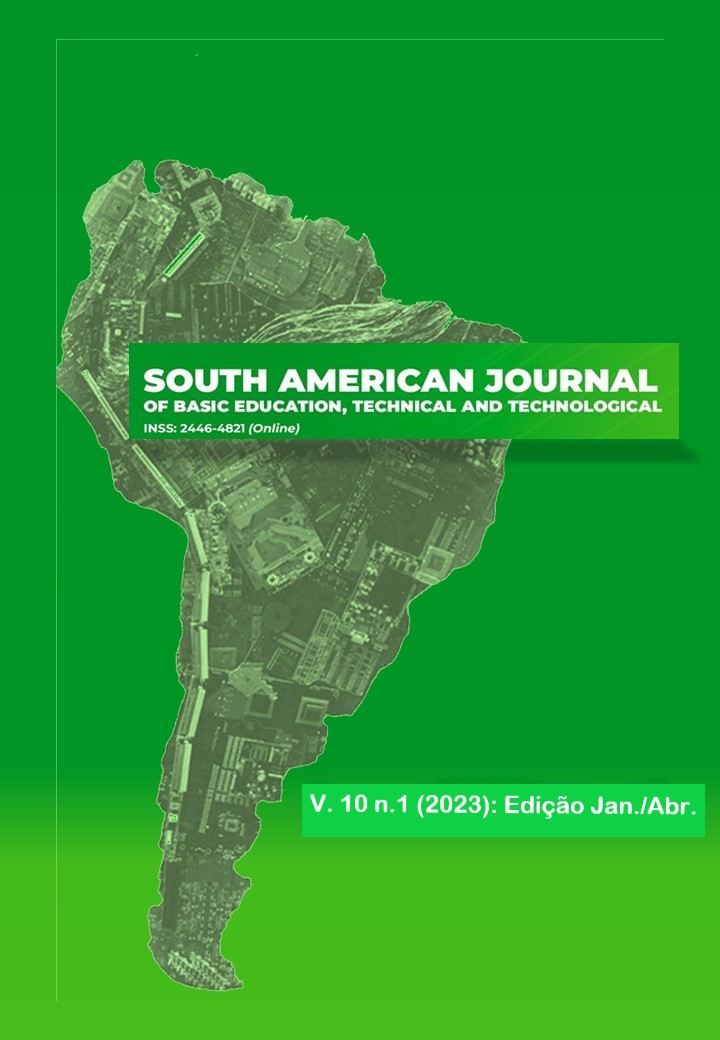PROBATION INTERNSHIP IN FUNDAMENTAL EDUCATION: AN EXPERIENCE REPORT IN PANDEMIC TIMES
ÉTICA EM TEMPO DE PANDEMIA
Keywords:
Probation Internship, Pandemic, Teacher training, EthicsAbstract
In the current global situation of severe mobility restrictions, derived from the guidelines for the protection of the citizen against the coronavirus, remote education has identified itself as a generalized alternative of a classroom model in a pandemic period. Thus, through this experience report, based on the final report presented in the Probation Internship in Elementary Education, we invite the academic community to reflect on the effective transversality of Ethics in its educational art. Brazilian public education, in our view of educators, is one of the main accomplices in dismissing the importance of collective morality, not stimulating ethical skills in children. Thus, we believe it is opportune to provide a triangulation of the established knowledge, in the second year of elementary education of a municipal school, with the scientific currents of our reference authors, which address the construction of morality and the incentives for the development of ethical skills. Ethical skills, understood as part of the mortar that unites us in citizenship, become an object of essential knowledge for the development of human moral competences and the public school becomes one of the main means of building community morality. Our work manifests the coherence of our main hypothesis, that Ethics is not addressed within public schools, nor across, both in educational didactics and in pedagogical activities, according to the guidelines of the National Curriculum Parameters of 1997. A question arises in the evidence urgent need to change educational behaviors, especially in the teaching / learning of values. After all, in what values should we educate?
Downloads
References
[2] PIAGET, J. The moral judgement of the child. Glencoe, Ill: Free Press, 1948.
[3] KOHLBERG, L. Psicologia del desarrollo moral. Desclée de Brouwer, 2003.
[4] WAAL, F. D. Primates and philosophers: How morality evolved. Princeton, NJ: Princeton University Press, 2009.
[5] BAUMAN, Z.; DONSKIS, L. Cegueira moral: a perda da sensibilidade na modernidade líquida. Rio de Janeiro: Jorge Zahar, 2014.
[6] FRANCO, M. A. S. Prática pedagógica e docência: um olhar a partir da epistemologia do conceito. Revista Brasileira de Estudos Pedagógicos, v. 97, n. 247, 2016.
[7] GOMES, S. S. Tessituras Docentes da Avaliação Formativa. 2003. Tese de Doutorado. Dissertação de Mestrado em Educação: Faculdade de Educação, Universidade Federal de Minas Gerais.
[8] PEREIRA, S. Planejamento: conteúdo, questões conceituais, procedimentais e atitudinais. Construir Notícias, n. 41, p. 17-24, 2008.
[9] HARARI, Y. N. Sapiens: uma breve história da humanidade. L&PM, 2015.
[10] QEDU, Fundação Lemann e Meritt. Dados das escolas. Disponível em < https://qedu.org.br >. Acesso em 20 de novembro de 2020.
[11] AQUIDAUANA. Lei ordinária 1231/91: dispõe sobre os estatutos dos funcionários públicos do município de Aquidauana. Disponível em < http://www.tce.ms.gov.br/storage/docdigital/2009/09/00000118.pdf>. Acesso em 26 de novembro de 2020.
[12] CASTRO, J. P. S. R. et al. Dimensões acadêmicas da cegueira moral: um relato de experiência. Horizontes-Revista de Educação, v. 7, n. 14, p. 258-272, 2019.
[13] SILVA, R. F.; ARAUJO, P.F. Os caminhos da pesquisa em atividade motora adaptada. São Paulo: Phorte Editora, 2012.










